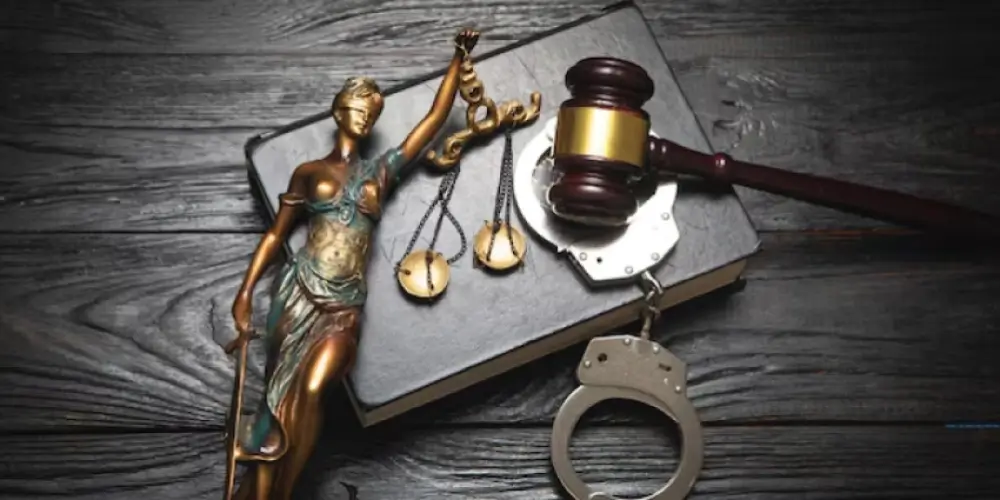

Double Jeopardy: Safeguarding Justice in the Criminal Justice System
25/10/2024 Clara Anderson 924
In the intricate architecture of the criminal justice system, the principle of double jeopardy stands as a fundamental safeguard designed to ensure fairness and protect individuals from the arbitrary exercise of governmental power. This principle, deeply rooted in the legal doctrines of many democratic societies, prohibits an individual from being prosecuted or punished more than once for the same offense. It embodies a critical protection against the possibility of repeated legal proceedings, which could otherwise lead to harassment, undue stress, and potentially oppressive treatment by the state. Here, we will delve into the essence of double jeopardy, exploring its constitutional foundations, operational mechanics, and the balance it seeks to achieve between individual rights and the pursuit of justice.
Constitutional Foundations and Historical Context
In the United States, the principle of double jeopardy is enshrined in the Fifth Amendment to the Constitution. Specifically, the Amendment states that no person shall "be subject for the same offense to be twice put in jeopardy of life or limb." This provision reflects a long-standing legal tradition that dates back to English common law, which sought to protect individuals from multiple prosecutions for the same offense—a principle that evolved through centuries of jurisprudence to become a cornerstone of modern legal systems.
Historically, the rationale behind double jeopardy includes preventing governmental overreach and ensuring that once a person has been acquitted or convicted, they are shielded from further legal jeopardy for the same alleged conduct. This protection serves multiple purposes: it provides closure to the accused, prevents the potential for prosecutorial abuse, and maintains the integrity of the judicial process by preventing successive prosecutions that could undermine public confidence in the legal system.
Mechanics of Double Jeopardy
To fully appreciate the scope of double jeopardy, it is essential to understand how it operates in practice. The principle applies to various stages of the legal process, including:
-
Acquittal: When a defendant is acquitted of charges, double jeopardy bars any subsequent prosecution for the same offense. An acquittal, whether it results from a jury verdict or a judge’s ruling, effectively prevents the state from retrying the case. This provision ensures that individuals are not subjected to the emotional and financial toll of repeated trials for the same conduct.
-
Conviction: Similarly, if a defendant is convicted and sentenced, double jeopardy precludes further prosecution for the same offense. Once an individual has been convicted, the principle protects them from facing additional charges related to the same criminal conduct, thereby reinforcing the finality of criminal convictions.
-
Mistrial: Double jeopardy considerations are also relevant in cases where a trial ends in a mistrial, often due to a hung jury or procedural errors. Generally, a mistrial does not bar retrial, as the jeopardy has not fully attached. However, retrial is subject to limitations to prevent prosecutorial abuse, such as retrying a case multiple times after unsuccessful attempts to secure a conviction.
Exceptions and Nuances
While double jeopardy provides robust protection, it is not without exceptions or nuances. Key aspects of these exceptions include:
-
Separate Sovereigns Doctrine: In the United States, the principle of double jeopardy does not extend to prosecutions by separate sovereigns. This doctrine allows both state and federal governments to prosecute an individual for the same conduct, as each jurisdiction operates under its own legal framework and enforcement priorities. For instance, an individual acquitted of a crime in state court may still face federal charges for the same conduct.
-
Separate Offenses: Double jeopardy does not preclude prosecution for separate and distinct offenses that arise from the same criminal conduct. For example, an individual convicted of assault may face additional charges for related crimes, such as robbery, if these offenses involve different legal elements or factual circumstances.
-
Civil vs. Criminal Proceedings: The principle of double jeopardy does not apply to civil proceedings, even if they are related to the same conduct. Thus, a person acquitted of criminal charges may still face civil suits for damages arising from the same events, reflecting the distinct nature of civil and criminal legal standards.
Impact on Justice and Legal Practice
The principle of double jeopardy plays a crucial role in balancing the rights of the accused with the objectives of the criminal justice system. By preventing multiple prosecutions for the same offense, it ensures that individuals are not subjected to the psychological and financial burdens of repeated trials. This protection promotes fairness and upholds the constitutional guarantee that once an individual has been held accountable or exonerated, they are shielded from further jeopardy for the same act.
Moreover, double jeopardy serves as a deterrent against prosecutorial misconduct and encourages the efficient and fair administration of justice. Prosecutors must diligently prepare their cases and make their determinations within the confines of the initial prosecution, knowing that any subsequent attempts to retry the case are precluded by the principle of double jeopardy.
In summary, the principle of double jeopardy is a cornerstone of the criminal justice system, enshrined in constitutional law to protect individuals from being prosecuted or punished more than once for the same offense. Its application ensures the finality of legal proceedings, guards against governmental abuse, and upholds the integrity of the judicial process. While there are exceptions and nuances to its application, double jeopardy remains a fundamental safeguard that embodies the commitment to fairness and justice within the legal system. Understanding and respecting this principle is essential for maintaining the balance between individual rights and the broader goals of criminal justice.
Recent Blogs
Effective Strategies for Man ...
09/01/2025 1255
The Role of Credit Insurance ...
07/01/2025 473
The Rights and Protections f ...
05/01/2025 838
Comparing Global Tax Systems ...
03/01/2025 740
External Training and Certif ...
01/01/2025 474
Trending Blogs
Collective Bargaining and Un ...
30/06/2024 13539
Collision Insurance: Coverag ...
19/05/2024 13107
Introduction to Financial La ...
07/04/2024 12990
Introduction to Immigration ...
11/04/2024 12865
Self-Employment Income: Star ...
19/04/2024 12695











